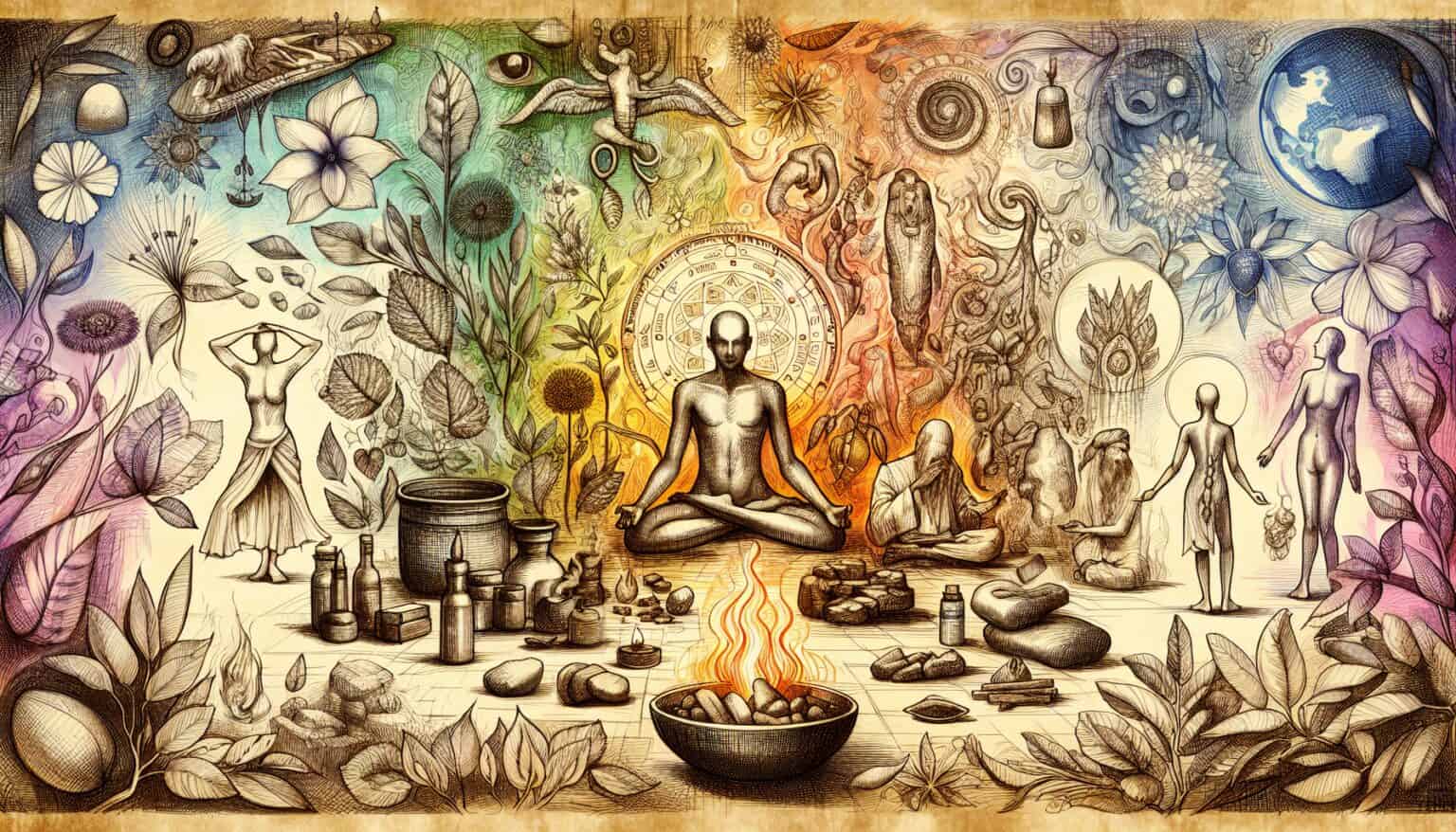A Deep Dive into the Spiritual Concept of Ayurveda
Introduction
The concept of Ayurveda, often referred to as the “science of life,” is a rich and intricate system that originates from ancient India. Supporting both physical health and spiritual development, Ayurveda proposes that understanding our unique nature can guide us towards a balanced, fulfilling life. In this article, we will explore how embracing Ayurvedic principles can contribute to inner peace, resilience, compassion and personal growth.
In-Depth Explanation
Dive deeper into the symbolic universe of Ayurveda with us. Imagine your body as an eco-system: with rainforests akin to your lungs, rivers mirroring blood circulation streams with floras representing both physical cells and energy nodes. Just as maintaining natural diversity ensures ecosystem health, maintaining bodily harmony supports our overall well-being.
The core principle revolves around three vital energies or ‘Doshas’: Vata (air+space), Pitta (fire+water), Kapha earth+water). These universal elements are present everywhere – within you, around you – knitting a tangible interconnection between us and cosmic rhythms.
Just like weather changes in each season influencing flora & fauna behavior in nature; Doshas within human body varies according to age (seasons of life), time of day (diurnal rhythms) affecting your preferences—how you eat-sleep-think-react.
Practical Application: grasp what it is like living according to these insights!
Challenging situations: According to Ayurvedic wisdom, you cannot control external circumstances but your response.
Let’s say, getting stuck in traffic sparks frustration—Pitta imbalance. Instead of letting anger surge, Ayurveda advises cooling practices like slow breathing or soothing mantra repetition to reinstate balance.
In Relationships: Understanding dosha dominance can also aid in harmonizing relationships.
For instance, a Vata-dominant person could be creative yet have unsettling energy. Recognizing this may help their Kapha partner to radiate calm steadiness rather than perceiving them as exhausting.
Personal Growth: By listening to dosha whisperings, you can harness facets that propel personal growth.
E.g., dynamic pitta energy could push one towards achievement but may make them overly critical. Ayurveda encourages cultivating compassionate self-awareness enabling balanced success pursuit.
Actionable Steps
- Determine Your Dosha: Start with understanding your unique constitution aka “prakruti“. You can use quizzes available online or consult an Ayurvedic practitioner for precise constitution recognition.
- Daily Rituals (“Dinacharya”):Ayurveda encourages biodiversity-preserving routines promoting harmony within and without. e.g., #1 Selenium-oil massage called ‘Abhyanga’—to ground excessive Vata movement; #2 Eating according to season/circadian pattern maintaining pitta coolness; #3 Regular exercise like yoga for balancing Kapha heaviness.
- Nurturing Five Senses: Ayurvedic wisdom suggests conscious five-sense nurturing ensuring holistic health.
e.g., admiring calming green nature balances Pitta eye (Vital sense organ).
Conclusion
No matter what your spiritual or religious background, Ayurveda’s wisdom can be incorporated into our daily lives, paving the way to inner peace and personal growth. It offers a holistic outlook interweaving microcosmic human life with macrocosmic rhythms. So why not give it a try? Remember that we are all unique individuals on our own paths of self-discovery and healing. We hope this deep dive has sparked your interest in the sacred art of Ayurveda.
We invite you to share the golden nugget you have found within this article in the comment section down below. Questions are also welcome—let’s dive deeper together!

